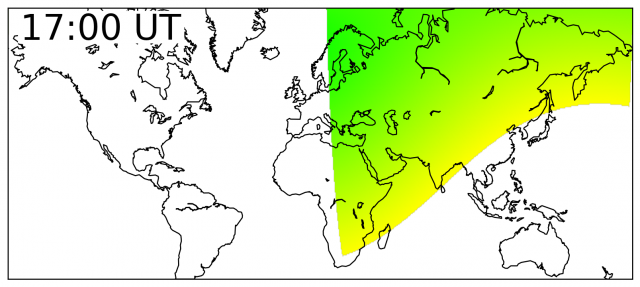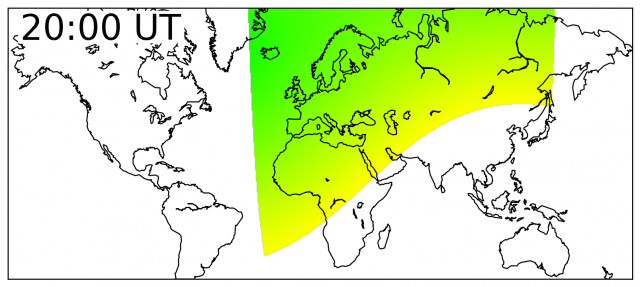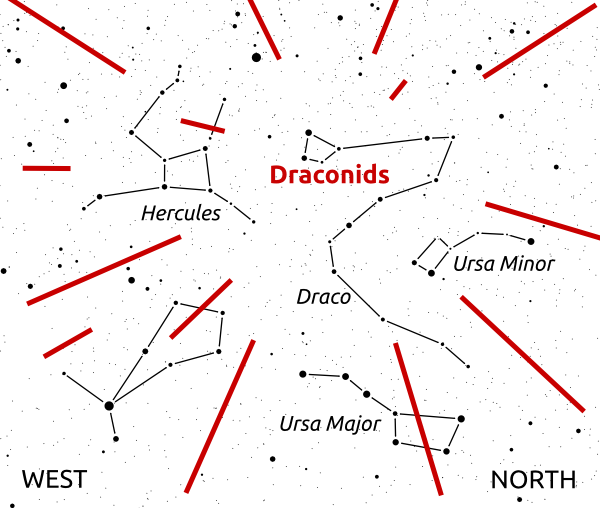What will happen?
Several studies1 predict that on 8 October 2011, Earth will encounter several trails of dust produced by comet 21P/Giacobini–Zinner in the late 19th and early 20th century. This is expected to cause a moderate enhancement in the meteor activity. The precise number of meteors is highly uncertain, but estimates suggest a peak level of up to 1 to 10 shooting stars per minute. Unfortunately, only 5 to 20% of these meteors will be visible because of the disturbing light from a nearly full moon, so observers are likely to see only 1 meteor per minute or less. However, the event is of great interest to scientists because it will help them understand how meteor showers form and evolve.When will this be visible?
The meteor activity of the Draconids (DRA) is expected to be enhanced on 8 October 2011 between 16h00m and 21h00m Universal Time (UTC). Predictions suggest a peak of faint meteors around 20h00m (±30m) UTC, caused by dust produced by the comet in 1900 and 1907 AD. Earth previously encountered these dust trails in 1933 and 1946, producing strong meteor storms on those occasions. Such exceptional meteor activity is not expected this year, because the trails are now older and more dispersed. There could be additional peaks earlier in the evening, between 16h00m and 19h00m UTC, if the comet also produced dust before its discovery in 1900 AD. These meteors are likely to be brighter.Use the table below to look up the local time in your time zone.
| Time zone | Enhanced activity | Main peak? |
|---|---|---|
| Universal Time UTC (Casablanca, Dakar) | 16h - 21h | ~20h |
| West Europe (London, Dublin) | 17h - 22h | ~21h |
| West Africa (Algiers, Tunis, Lagos) | 17h - 22h | ~21h |
| Central Europe (Berlin, Paris, Rome) | 18h - 23h | ~22h |
| East Europe (Helsinki, Kiev, Istanbul) | 19h - 24h | ~23h |
| Russia (Moscow) | 20h - 01h | ~24h |
| Russia (Novosibirsk, Tomsk) | 23h - 04h | ~03h |
| India | 21h30 - 02h30 | below horizon |
| China | 24h - 05h | below horizon |
| Japan | 01h - 06h | below horizon |
| Americas | daylight | daylight |
Where will this be visible?
The enhanced activity will be visible from Europe, North Africa and North/West Asia. The green areas in the maps below show the regions which will be dark (Sun 6 degrees below horizon) and oriented towards the dust trail (radiant above horizon) at 17h00m and 20h00m UTC on 8 October 2011. The event will not be visible outside these areas.

Map source code: plot_visibility_map.py (Python script)
Where should I look?
The meteors will appear to radiate from the constellation of Draco, which is located in the North-Western part of the sky from most locations. However, meteors may appear anywhere in the sky, so just look up!

0 comments:
Post a Comment